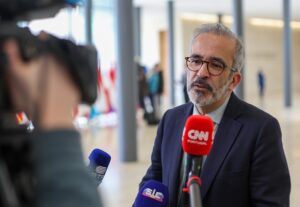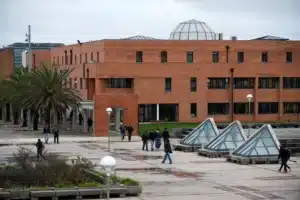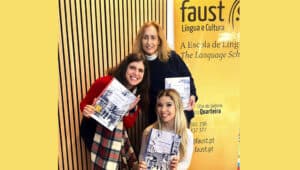What does the word ‘Education’ bring up for you? Personally, I had what most would consider a ‘good education’. One that had me fairly well-versed in the basics needed in life, at the same school, in fact, that produced the inventor of the internet, a certain Tim Berners-Lee, as well as TV personality Michael Aspel, who British readers of a certain age may know.
Whilst I had what could loosely be called a ‘classical education’, which included archaic character-building techniques like Latin, Divinity (R.E. to mere mortals), and conscripted sports such as rowing and rugby, I can only say I thrived, more ‘survived’, despite the system and not because of it.
During, or enduring, the drudgery of seemingly endless and soul-destroying senior school years, I was caned for forgery, broke my mother’s heart with unauthorised absences (truancy), and became an expert ghost of a pupil, only to be distinguished as such by those cruel and partial metrics of ‘O’ and ‘A’ levels, making the shoo-in step of University life and a useful ‘old school tie’ thereafter almost impossible for me.
I largely have myself to blame yet also feel that, as a square peg in that very specific round hole, I readily concur with Zander Sherman, who said: “In the 21st century, we use a 19th-century school model with 20th-century values. There’s clearly something wrong with this picture.”
Bitter? Possibly. But, certainly, still honestly hopeful in a general sense about how humans learn, grow and contribute, given that the etymology of the word ‘Education’ itself – ‘educare’ in Latin – means, as I understand it, “to raise, train, nourish”, allowing all to realise their own inner potential as much as society’s expectations.
And thank heavens for, and all power to, anyone actively involved in the process, at what was once called the ‘chalkface’, who has this literally world-changing potential positively in their hands, or minds; unlike me in my academic armchair.
People like Martin Harris, Executive Director of the United Lisbon International School (ULIS), with whom it was a pleasure to converse on the Good Morning Portugal! Show recently. And my daughter, who’s having a break here in Portugal, normally studying education itself as part of her university degree in Bologna, Italy.
Over dinner, my daughter Gloria shared with me: “I think the main challenge to face over the next few decades will be to find balance and harmony between embracing the benefits of new technologies and safeguarding developing young minds from negative effects.
“We can’t fear AI and new technologies anymore,” she continued. “We need to first educate ourselves and then show the younger generations how to use it to their best advantage. There are a growing number of AI platforms that make studying stimulating and accessible to suit a wide range of learning styles.”
“For the nearer term, I think there needs to be a collaborative effort between families, institutions and the wider community, to repair the collateral damage caused by the 2020 pandemic. We also need to further encourage physical play, social interaction outside of the classroom and experiential learning,” says this millennial student of the subject in question, this week.
Compare and contrast with Martin, who works day-to-day with the younger generation Gloria referred to, and some similar themes stand out.
“Our school is at the forefront of education, with a curriculum designed to meet the needs of children growing up in the 2020s and addressing the question of what is the best blend of skills, experiences, and knowledge that they will need when they move on to life beyond school. United Lisbon offers an inclusive, innovative community where students grow into confident, global citizens,” says the leader of ULIS, clearly something of a thought leader too, willing to grasp what’s needed in “an ever-changing global landscape”.
“ULIS’s programs go beyond academics, placing a strong emphasis on adventure, creativity, and personal growth through various initiatives,” he adds, pointing to what sounds like a modern classical education to me (if that’s not a contradiction in terms that the esteemed head might swipe with a red pen), including creative and performing arts, coding, filmmaking, AI, entrepreneurship and sustainability.
“Equally important are our values of responsibility, integrity, curiosity, resilience, and empathy,” says Mr Harris, which I feel inclined to respectfully call him, realising that things have changed a great deal since the single Sinclair ZX Spectrum that constituted my school’s ‘IT lab’, and selling my packed lunch in what I considered to be ‘business studies’.
Returning to now: “A glance at the big, wide world around us indicates that at times it appears disconnected and the future uncertain,” also Martin’s words, not mine, hit the nail on the head, don’t they? Making education, in the broadest sense, perhaps the most important, foundational issue for humanity, with Artificial Intelligence and rapidly-changing technology, geo-political unrest and transformation, and exponentially-shifting social demographics creating a heady context for young minds and their guardians.
But merely filling those minds with facts looks like an experiment that failed a couple of decades ago when we saw an explosion in overqualified personnel in underpaid jobs, if they were lucky enough to have a job at all.
William Butler Yeats put this very well when he said: “Education is not the filling of a pail, but the lighting of a fire.” And I suspect we will need a blaze of renewal and ideas in our Western education system, if the inevitable changes of the future are to be met amply, let alone gracefully, as we might ultimately hope for.
I’ve said before that Western Europe, and our little part of it here, cannot go on rinsing and repeating tired formulas that only bring negligible improvement (if we’re lucky), whilst the BRICS alliance and parts of the Far East look ready to repeat a quantum leap with their high-technology-based adoption that the Industrial Revolution brought us.
Going back to Martin Harris, who suggests that “those who have an outward and international outlook will prevail, and those who learn to collaborate and reflect will succeed,” I find myself in agreement, and heartened, especially by his testing policy, namely: “True learning cannot be standardised and measured purely in exam results; although we are ambitious in this arena, it is only one aspect of learning and school.”
“Hear, hear!” say I, as I am sure will others who failed by such crude and narrow processes, still with PTSD from the teenage anxiety of the examination hall, pacing invigilators, polo mints and hay fever. Also, jealous that the United Lisbon International School community is based in one of the hottest spots in Europe, looking out westward towards the Americas, south to mysterious Africa and east to the promise of, and excitement of, Asia. These youngsters, no doubt quite unaware of the fact, are so fortunate to be having their education in Portugal’s cool capital.
Being in Lisbon has suited Martin’s adventurous academic approach too, having arrived from a more conservative environment in the UK around four years ago, finding the ‘education landscape’ in the capital more open to innovation and “agile”, a word that could be pulled straight from the nearby start-up scene, within and from which the students can and do benefit.
Another sentiment that I’ve heard within the LX entrepreneurial atmosphere is ‘failing fast’ or accepting that mistakes and not getting ‘full marks’ are in themselves a learning process that constantly high achievers could miss out on. “I’m trying to tweak the mindset,” he told me. “Let’s not be worried about getting nought out of 10 as long as we learn from that. And that’s a lifelong message, that’s not just for school, we can all benefit from that.”
Lifelong learning is a theme that’s important to my daughter too, with whom it was wonderful to have a chance to discuss these matters during her short and sunny few days here. “My hope for the future of education is that we continue to diffuse the idea that one size does not fit all when it comes to the way we learn, but also how we are assessed and evaluated,” says Gloria who I suspect could fit in well in Mr Harris’s team one day!
“That’s my girl!” is all I want to say, seeing that the academic sins of the father, or at least carried out on the father, might finally be history. “Forward facing is a bit of a bland statement,” uttered the man himself on my morning show, adding: “My role is to prepare our children for life outside school and learning in the middle of the 21st century and, of course, none of us know really what that’s going to look like.”
And face forward we must, despite all bets being off as we wade deeper into peak uncertainty. However, there are keywords in my multi-generational exchanges here that we might heed and hold onto, including collaboration, inclusion and innovation, that might just be the lighthouse landmarks we sail for on the more prosperous and fulfilling shores of the future.
ULIS can be found at https://www.unitedlisbon.school/
Hear Carl talking with Martin Harris on the Good Morning Portugal! show below


























